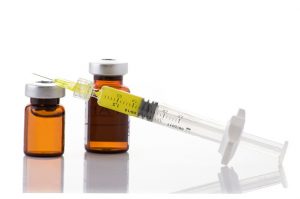 Rotavirus infection and a type 1 diabetes risk may be prevented using novel bacterial protein. Research has shown that rotavirus infection – which is a common cause of diarrhea in children – increased the risk of type 1 diabetes in mice. The research highlights how rotavirus infection may contribute to autoimmune diseases and may offer a breakthrough, which could be relevant to humans and the rotavirus.
Rotavirus infection and a type 1 diabetes risk may be prevented using novel bacterial protein. Research has shown that rotavirus infection – which is a common cause of diarrhea in children – increased the risk of type 1 diabetes in mice. The research highlights how rotavirus infection may contribute to autoimmune diseases and may offer a breakthrough, which could be relevant to humans and the rotavirus.
The researchers believe that the link may be a result of the “bystander effect,” which is a theory that suggests when a virus provokes a strong activation of the immune system, it then spills over, causing the immune system attack the virus as well as the body’s own healthy cells. In the case of the current study, the immune system attacks insulin cells, thus contributing to type 1 diabetes.
Advertisement
Lead researcher, Associate Professor Barbara Coulson said, “This bystander mechanism provides a potential explanation for the acceleration of type 1 diabetes development by rotavirus infection in mice. It is possible that the same process could operate following human rotavirus infection, and lead to a more rapid progression of children towards type 1 diabetes. Further studies are needed to determine the relevance of our findings to humans.”
“Ultimately, this should help us understand the link between virus infection and the development of type 1 diabetes. Understanding how rotavirus affects human type 1 diabetes development is expected to facilitate the implementation of preventative treatment for children at risk this disease. For example, treatments that dampen down the particular type of immune response caused by rotavirus may be beneficial,” concluded Professor Coulson.
Rotavirus prevention
Rotavirus infection commonly affects young children as they are more susceptible to touching objects that may be contaminated and then putting their fingers in their mouth. Symptoms of rotavirus include fever, vomiting, and diarrhea, and can last up to a week. Rotavirus can lead to dehydration, as the body continuously expels fluid, and so it’s important to stay well-hydrated in case of a rotavirus infection.
Unlike many other viruses, rotavirus does have a vaccination available. Receiving this vaccination can help lower your risk of contracting the virus. Aside from being vaccinated, frequent hand washing with soap and water is essential to ensure you don’t get sick.
Furthermore, refrain from putting your hands in your mouth, especially if you’re touching unknown objects, as you can easily become sick that way.
If you do get a rotavirus infection, drink plenty of fluids and get plenty of rest. The infection will simply have to take its course, but if the symptoms worsen progressively as the days pass, see your doctor or visit a hospital.
